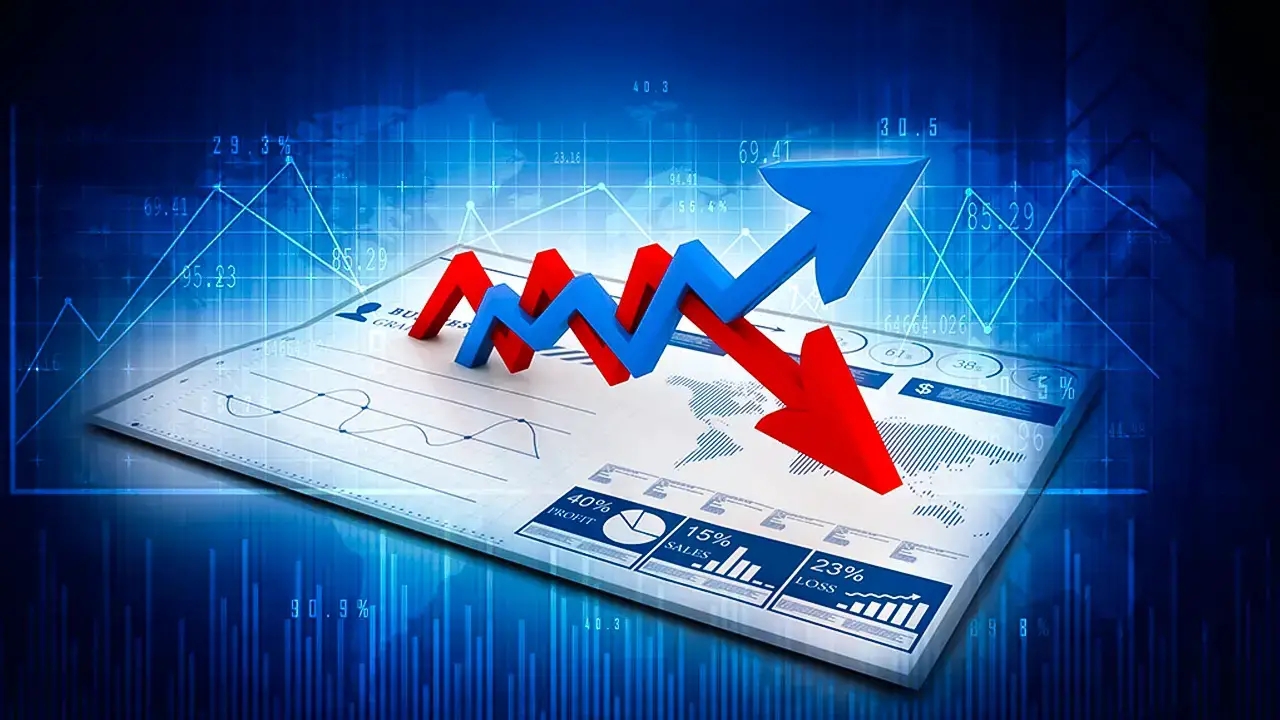It is best to keep a close eye on your spending and avoid taking unnecessary risks that could jeopardize your financial goals while the economy is slow or in a recession.
Your personal finances may suffer during a recession. You can weather the economic storm by being organized and by taking a few straightforward precautions to lower your risks. The following are a few financial dangers that no one should take during a recession.
Briefly, What Is a Recession?

A significant and pervasive decline in economic activity is referred to as a recession. According to a widely accepted definition, a recession is defined as two consecutive quarters of falling gross domestic product (GDP). Recessions typically result in lower economic output, less consumer demand, and rising unemployment.
6 Mistakes You Must Avoid During A RECESSION
Becoming a Cosigner
Cosigning a loan can be a very risky commitment, even in good economic times. If the borrower does not make the required payments, the cosigner might have to make them instead. During an economic downturn, the risks associated with cosigning on a debt are even higher, since the borrower as well as the cosigner may face an elevated likelihood of losing a job or seeing a decline in business income.
Cosigning potentially leaves you on the hook for the life of a loan. Consider other ways to help the borrower if you can.
That said, you may find it necessary to cosign for a family member or close friend regardless of what is happening in the economy. In such cases, it pays to have some savings set aside as a cushion. Or, instead of cosigning, it may even be preferable to assist with a down payment or make a personal loan rather than leaving yourself on the hook for the cosigned loan.
Risks of Cosigning
| Risks | Mitigation |
|---|---|
| Higher likelihood of job loss | Establish an emergency fund as a cushion. |
| Responsibility for loan payments | Explore alternatives such as assisting with a down payment or making a personal loan instead. |
| Impact on credit rating | Monitor your credit score and financial health diligently. |
Getting an Adjustable-Rate Mortgage
When purchasing a home, you may choose to take out an adjustable-rate mortgage (ARM). In some cases, this move makes sense (as long as interest rates are low, the monthly payment will stay low as well). Interest rates usually fall early in a recession, then rise later as the economy recovers. This means that the adjustable rate for a loan taken out during a recession is more likely to rise once the downturn ends. 1
While interest rates usually fall early in a recession, credit requirements are often strict, making it challenging for some borrowers to qualify for the best interest rates and loans.
Consider the worst-case scenario: You lose your job and interest rates rise as the recession starts to abate. Your monthly payments go up, making it extremely difficult to stay current on the payments. Late payments and non-payments can lower your credit rating, making it more difficult to obtain a loan in the future.
Instead, assuming you have decent credit, a recession may be a good time to lock in a lower fixed rate on a mortgage refinance, if you qualify. However, be cautious about taking on new debt until you see signs that the economy is recovering.
Risks of Adjustable-Rate Mortgages (ARMs)
| Risks | Mitigation |
|---|---|
| Rising interest rates | Lock in a lower fixed-rate mortgage refinance if you qualify. |
| Challenging credit requirements | Maintain good credit to secure favorable interest rates and loans. |
| Impact on credit rating | Be cautious about taking on new debt until economic recovery is evident. |
Assuming New Debt
Taking on new debt—such as a car loan, home equity line, or student loan—need not be a problem in good times when you can make enough money to cover monthly payments and still save for retirement. But when the economy takes a turn for the worse, risks increase, including the risk that you will be laid off or lose business income. If that happens, you may have to take a job—or jobs—that pay less than your previous salary, which could eat into your ability to pay your debt.
In short, if you are considering adding debt to your financial equation, understand that this could complicate your financial situation if your income declines. Taking on new debt in a recession is risky and should be approached with caution. Pay cash if you can, or wait on big new purchases.
Risks of Assuming New Debt
| Risks | Mitigation |
|---|---|
| Income decline impacting debt payments | Evaluate the stability of your income and consider waiting on significant purchases. |
| Reduced ability to save for retirement | Focus on essential expenses and prioritize necessary bills. |
| Strain on overall financial situation | Pay in cash if possible or explore alternative financing options. |
Taking Your Job for Granted
During an economic slowdown, even large corporations can come under financial pressure, leading them to look for cost cuts. All too often, that means layoffs.
Experiences in the technology industry in 2022 provide a reminder of how fragile employment can be in the face of an economic downturn. With the threat of recession looming, large tech companies made drastic workforce cuts. In November 2022, Facebook parent company Meta Platforms, Inc. (META) parted ways with 11,000 employees, while Amazon.com, Inc. (AMZN) announced that it would cut 10,000 jobs, marking the largest layoffs in the histories of both companies.
Because jobs become so vulnerable during a recession, workers can’t take finding another one for granted, so it is wise to think carefully before leaving a job when the economy is in a rough patch. In addition, older workers retiring during a recession could see their income decline and their retirement portfolio suffer just as they start to draw it down, If the economy is tumbling as you near retirement age, it’s important to weigh your options.
Job Security in a Recession
| Considerations | Recommendations |
|---|---|
| Potential layoffs in the industry | Think twice before leaving your job during an economic downturn. |
| Income decline close to retirement age | Weigh your options carefully if retirement is approaching. |
Making Risky Investments
This tip applies to business owners. While you should always be thinking about the future and ways to grow your business, an economic slowdown may not be the best time to make risky bets. Early on in a recession is not the time to stick your neck out. Later, once the economy starts to show signs of a sustainable recovery, is the time to start thinking big.
Especially avoid investment projects that would require you to take on new debt to finance.
Borrowing to add space or increase inventory may sound appealing—particularly since interest rates are likely to be low during a recession. But if business slows down more—as it may during a recession—you may not be able to make interest payments on time. Wait until interest rates just start to tick upward and leading economic indicators for your market or industry turn up.
Risks of Risky Investments
| Risks | Mitigation |
|---|---|
| Uncertainty in a recessionary market | Avoid making risky bets early in a recession. |
| New debt for investment financing | Wait for economic indicators to turn positive before taking on new debt. |
Additional Points to Consider
- Diversify Your Income: Relying solely on one source of income can be risky during a recession. Exploring multiple income streams, such as freelancing, part-time work, or passive income sources, can provide stability.
- Review Your Insurance: Ensure that you have adequate insurance coverage, including health, home, and disability insurance. Adequate coverage can protect you from unexpected financial setbacks.
- Focus on Essential Expenses: Identify essential expenses and prioritize them over non-essential spending. Cutting back on discretionary spending can free up resources for necessary bills.
- Seek Professional Advice: Don’t hesitate to consult with financial advisors or professionals who can provide personalized guidance tailored to your unique financial situation.
What Are the Biggest Risks to Avoid During a Recession?

Many types of financial risks are heightened in a recessionary environment. This means that you’re better off avoiding some risks that you might be okay with taking in better economic times—such as cosigning a loan, taking out an adjustable-rate mortgage, or taking on new debt.
While a recession is no time to panic, you should be conscious of potential layoffs in your industry and the likely difficulty in finding a new job if you end up unemployed. If you own a business, it is best to avoid overextending yourself with risky new investments during bleak economic times.
How Can You Protect My Investments During a Recession?
There is no surefire way to position your investment portfolio during a recession. In some cases—particularly if you have a longer investment horizon that will give your assets time to recover from any losses during the recession—you may benefit from leaving your portfolio alone. This keeps you invested in the markets and poised to gain from an eventual recovery.
If you decide to make some changes to your investment strategy in response to economic concerns, there are ways you can reduce your risk. Riskier assets like stocks and high-yield bonds tend to lose value in a recession, while assets that are seen as more stable, like gold and U.S. Treasury bonds, tend to appreciate. Within the stock market, shares of large companies with solid cash flows and dividends tend to outperform in downturns.
Conclusion
An economic slowdown shouldn’t cause you to panic, but you should watch your expenditures carefully and avoid taking unwarranted risks. There are numerous constructive actions you can take to improve your condition and recession-proof your life, even in the middle of a severe economic crisis. These include creating an emergency fund, creating a reasonable budget, and finding new sources of income.
Frequently Asked Questions About Recessions
| Question | Answer |
|---|---|
| What is a recession, and what causes it? | A recession is a sustained economic downturn characterized by declining GDP. It is typically caused by various factors, including reduced consumer spending, decreased business investment, and external shocks such as a financial crisis. |
| How can I protect my finances during a recession? | To safeguard your finances during a recession, consider strategies like building an emergency fund, reducing discretionary spending, diversifying your income, and reviewing your insurance coverage. Avoid risky financial moves like cosigning loans and taking on new debt. |
| Is it advisable to invest during a recession? | Investing during a recession can be an opportunity if you have a long-term investment horizon. Consider reallocating your portfolio to more stable assets like gold and U.S. Treasury bonds, and focus on dividend-paying stocks from financially robust companies. Consult a financial advisor for personalized guidance. |
| What are the consequences of cosigning a loan during a recession? | Cosigning a loan during a recession carries heightened risks. If the primary borrower defaults, you may be responsible for the debt, and both parties face a greater likelihood of financial instability due to job loss or reduced income. |
| Should I consider an adjustable-rate mortgage during a recession? | Opting for an adjustable-rate mortgage (ARM) during a recession can be risky, as interest rates may rise when the economy recovers. Instead, consider refinancing to a fixed-rate mortgage if you qualify, as it provides stability in uncertain times. |
| How can I diversify my income sources? | Diversifying your income involves exploring multiple streams of revenue, such as freelancing, part-time work, or passive income sources like investments. This strategy can provide stability during economic downturns. |











